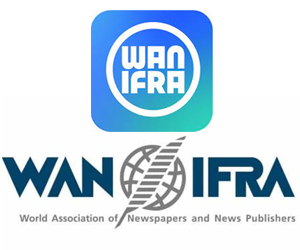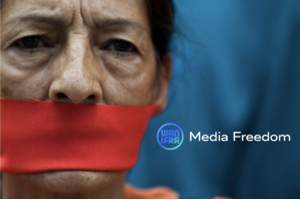Tech
APICTA SUSPENDS BASIS IT ASSOCIATION FOR 2 YEARS
Published
3 years agoon
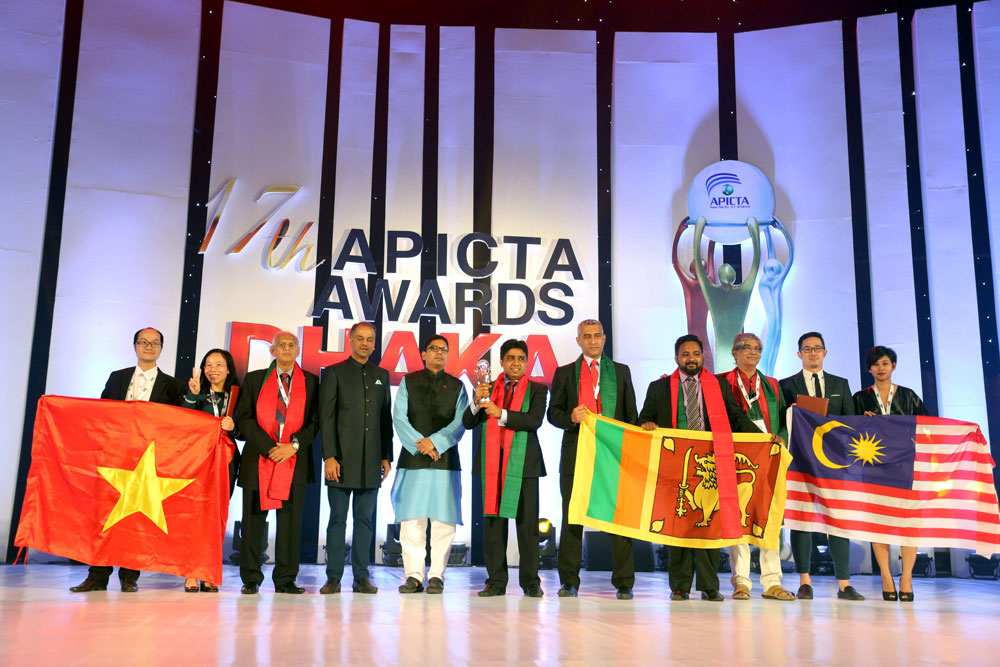
Asia Pacific ICT Alliance (APICTA) Executive Committee (EXCO) has suspended BASIS IT Association for 2 years due to the lack of cooperation,noncompliance to the clear directive of the EXCO regarding the requirement for participants to attend in person and the disruption caused due to their late stage withdrawal of the APICTA Awards program held December 7 – 11, 2022 in Islamabad, Pakistan.
APICTA was not immune to the global impact of COVID-19 and as a result no in-person
APICTA events were held in 2020 and 2021. A joint virtual award program was held for the
very first time for these two years. On March 30, 2022, Pakistan won the bid to host
APICTA Awards in Islamabad and following key decisions were made at the APICTA EXCO
committee meeting:
- Ratified that the APICTA event for 2022 in Islamabad be held physically.
- If by the event date (December 7 to 11, 2022) a member economy had governmentimposed
travel restrictions due to COVID-19, all participants from that member economy
could opt to attend virtually. - As for the Primary and Secondary Student category, it was made known to all member
economies that the students could participate virtually or physically. - With this context several meetings were held including a crucial meeting on November 8,
2022, where Bangladesh was represented by BASIS.
At the meeting, the host economy, Pakistan, through P@SHA, the organiser of APICTA
2022, together with APICTA EXCO, offered the following to each economy:
a) Visa applications made through P@SHA for all participants from every economy to ease
the burden of applying directly, if they wish to.
b) Assistance where required from any government department or relevant diplomatic
channel to ease in the process of visa application.
c) Subsidies including discounts for lodging for all judges travelling from various
economies and in some instances, airline fare discounts.
Chairman APICTA, Mr. Stan Singh said, “despite all of this, Bangladesh through BASIS did
not take advantage to explore this opportunity so that all judges and participants who were
registered to attend could travel with ease and economically to Islamabad.”
On November 19, 2022, APICTA Secretariat received a letter from BASIS expressing in the
letter that they were still “waiting” for APICTA EXCO’s response on their request to attend
virtually. However, the APICTA EXCO were confused over this strange and lapsed request
as the matter was resolved at the November 8, 2022 meeting, but nevertheless APICTA
EXCO responded soonest on November 20, 2022 expressing to BASIS that there was no
actions or decisions pending from APICTA EXCO and that it was not only made clear at the
November 8 meeting of the decision, but reiterated the decision in that, unless there was
any travel restrictions due to COVID-19, all participants (excluding students) must attend in
person.
BASIS was also offered additional time to register entries, even though the entry date into
the judging system was already closed. Despite all of the support that was offered, there
was no response from BASIS after the email which was sent from APICTA EXCO on
November 20, 2022.
On November 21 & 22, 2022, the APICTA Secretariat with P@SHA, wrote to every
participant from all economies respectively, informing them that unless their economy still
had travel restrictions due to COVID-19, that physical attendance was mandatory. In the
same correspondence, it was reiterated that Primary and Secondary Students Categories
could participate virtually. In the days leading up to the Awards, some of the participants
from Bangladesh were actually applying for Pakistan visas and making travel plans to
Islamabad. However, they informed P@SHA that BASIS requested them not to attend
physically but rather virtually because APICTA EXCO had agreed for Bangladesh to do so.
said, “once judging schedules and other logistics were finalised, Bangladesh withdrew completely on the eve of the event from the awards program, without giving any notice whatsoever and silently, which caused chaos and wreaked havoc in the scheduling causing the host economy to re-schedule the entire program, and this was against the harmony of APICTA.”
Mr. Singh continued to say, “this action taken by Bangladesh was reckless, unacceptable,
and untenable to APICTA EXCO and against the spirit of APICTA. The actions from BASIS
has never happened in the history of APICTA and we were all profoundly upset over this
matter. At the APICTA EXCO meeting in Islamabad, this matter was discussed and every
EXCO member at that meeting felt such action taken by BASIS was truly reckless,
unacceptable and a decision was taken to give BASIS the opportunity to explain their
actions. The response from BASIS was assigned to an APICTA EXCO sub-committee
ONLY to investigate the facts and carry out due diligence on the matter. The sub-committee
shared their findings and recommendations to the APICTA EXCO who then unanimously
decided to suspend BASIS as a member of APICTA for a period of two (2) years. In
addition, in the past we never had any issues arising with any of the BASIS leadership”
In addition, APICTA EXCO is compelled to address and clarify some of the statements
which have been circulating in the public domain:
i. Nepal had requested a leave of absence for a period from APICTA following a major
earthquake and the APICTA EXCO accepted their request and will welcome them back
when they are ready to do so and APICTA wishes them well.
ii. APICTA welcomes any new member economies, and several economies within and
outside the Asia Pacific region have shown keen interest in APICTA membership. The
EXCO reviews each application on a case-to-case basis.
iii. The core APICTA goals and objectives are always maintained – that is, promoting
growth in every member economy and providing them with every opportunity to
showcase the best examples of ICT innovations in government, businesses, community,
and individuals alike.
Over the last few years, APICTA has introduced other elements to the eco-system of
APICTA by adding initiatives like Business Matchmaking, Students Exchange, Startups
Networking etc. In addition, enabling all participants to experience the culture of the host
economy via wonderful social and tourism opportunities whilst providing and facilitating
networking and business opportunities for them, and as the technology landscape changes,
APICTA will continue in its endeavour to make changes to add to the value chain.
Mr. Inserra concluded by saying, “since its inception, every economy has had the
opportunity to host the APICTA event and Bangladesh did so successfully in 2017. It is
important to note that this suspension does not apply to participants from Bangladesh,
whom we strongly felt were deprived the opportunity in Islamabad. As such they shall have
the same opportunity to participate in the upcoming APICTA Awards 2023 & 2024. APICTA
requires that all entries must come through a representative body of the member economy.
Since BASIS, as the incumbent member body representative is suspended, we will explore
other options with the assistance of the IT Ministry to ensure active participation from
Bangladeshi students, startups, IT companies and experienced category judges.”
APICTA will not be making any further comments regarding this matter
You may like
-


New milestone in ICT branding: In four European countries, BASIS is organizing promotion campaigns
-


BASIS working to promote Bangladesh ICT industry in the United Kingdom
-
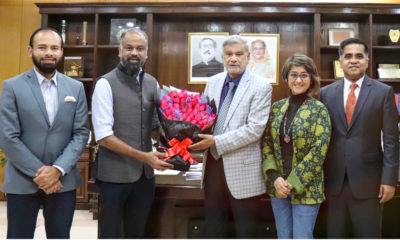

BASIS requests to allocate 10 percent of ministry budgets for software and ITES
-
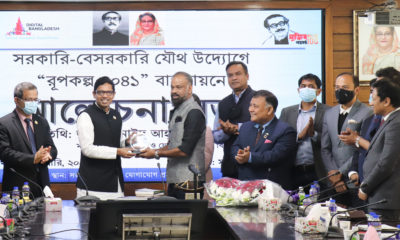

‘Vision 2041’ to be implemented through Public-Private Partnership
-
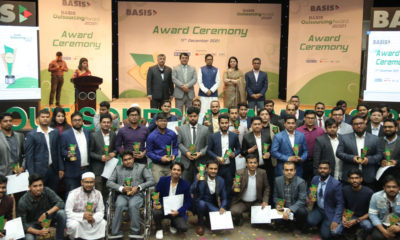

BASIS awards to the best 99 individuals and organizations
Tech
From Confusion to Clarity: Dheow’s Book Helps Users Master ChatGPT Conversations
Published
2 months agoon
November 10, 2025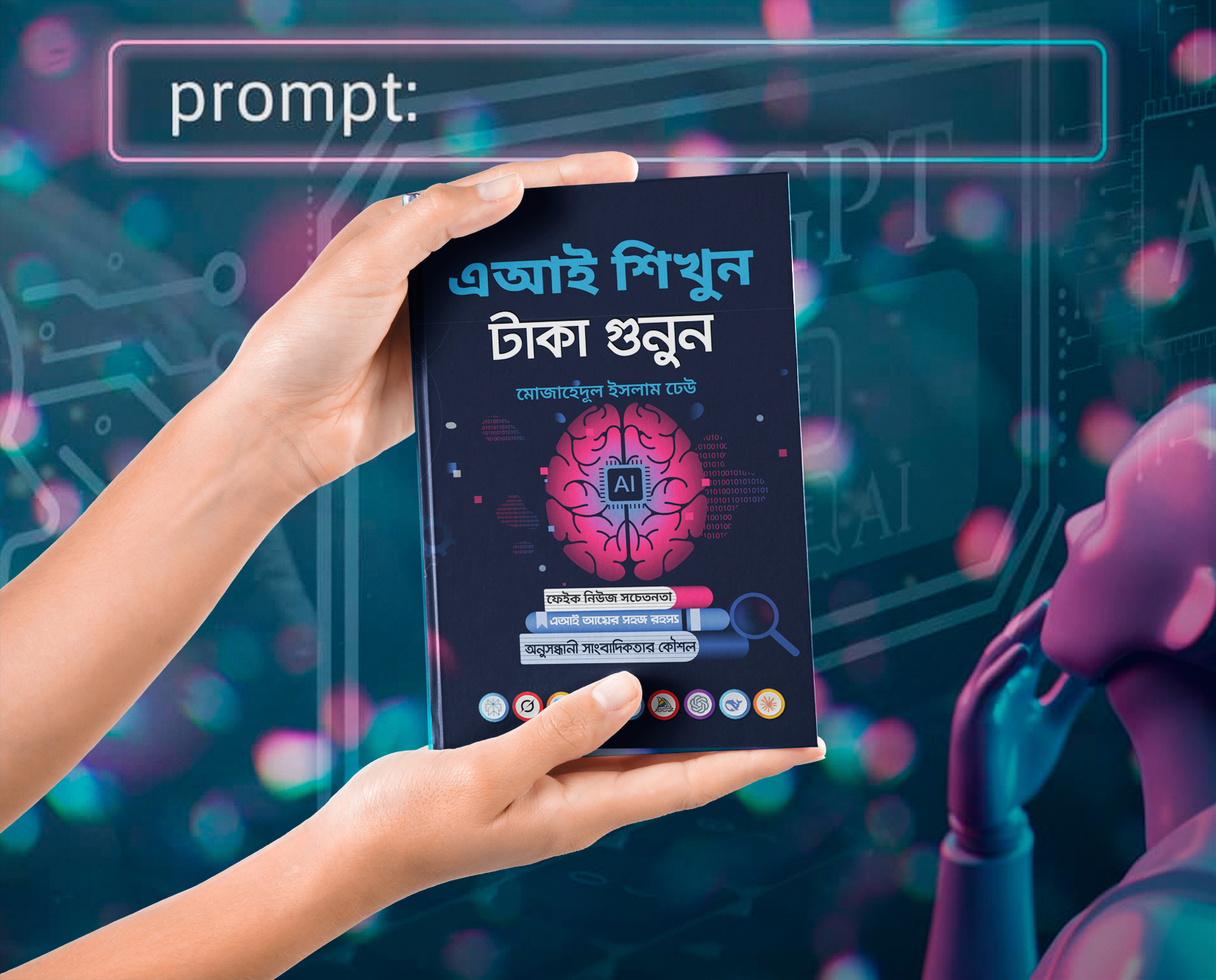
The much-anticipated book ‘AI Shikhun Taka Gunun’ (Learn AI, Count Money) by ICT writer and journalist Mojahidul Islam Dheow has officially hit the shelves. According to Systech Publications, the book received an overwhelming response even before its release, with more than 1,600 pre-orders placed within the very first week through platforms like Rokomari.com, Prothoma, and other online stores. It is now available at bookstores across Bangladesh, including Systech’s outlet in Banglabazar, Dhaka, at a printed price of Tk 400.
In today’s fast-changing digital world, we stand at a crossroads where a single keystroke can open the door to new income opportunities. Artificial Intelligence (AI) has become humanity’s newest coworker—reshaping how we live, learn, and earn. Mojahidul’s latest book builds a bridge from learning to earning, connecting investigative journalism with public awareness and guiding readers toward practical uses of AI for creativity, innovation, and income generation.
The book is thoughtfully divided into three major parts. The first part serves as an income guide for young learners, showing them how to use AI prompts and tools to find freelance work, generate creative ideas, and turn them into profitable ventures. The second part functions as an investigative toolkit for journalists, offering hands-on advice on data mining, source verification, and cybersecurity using AI applications. The third part caters to general readers, simplifying the complex world of AI and explaining its opportunities and risks in easy, everyday language—from detecting deepfakes and misinformation to understanding how AI is transforming modern life.
Within its chapters, the author introduces over 150 AI tools across more than 30 categories, helping readers explore the most effective AI resources for any purpose—whether for business, work, or personal development. The book highlights tools for AI assistance, video and image generation, automation, meetings, and research. It also discusses AI-powered writing, design, and app-building platforms, alongside innovative AI search engines. Readers will find valuable insights into AI tools for knowledge management, email automation, scheduling, presentations, and even résumé creation. Mojahidul further explores creative fields such as AI-generated voice and music, as well as marketing innovations that promise to revolutionize both productivity and imagination in the digital age.
Md. Mojahidul Islam Dheow, a computer science graduate, has been an active voice in ICT writing since 2003 and has authored over a dozen books. His title Web Database Application: MySQL-PHP was the first Bangla-language book on web database and application development, earning him the Bestseller Award in 2021. His writing style is lively, accessible, and deeply engaging—sometimes technically detailed, sometimes playfully conversational. Reading his work feels like chatting with a tech-savvy friend who’s eager to share smart digital tricks over a cup of coffee.
There are plenty of reasons to read AI Shikhun, Taka Gunun. Whether you’re a beginner looking to start freelancing, a journalist interested in mastering AI-driven investigative tools, or a curious reader eager to understand how AI is reshaping everyday life, this book speaks to all audiences with equal clarity and enthusiasm. Ultimately, Learn AI, Count Money is more than just a book—it’s a complete roadmap for thriving in the era of artificial intelligence.
Speaking about his new release, Mojahidul Islam Dheow shared his vision for the book:“This book reveals countless ways to earn through AI. You can use AI content tools to offer writing services, manage brands and social media accounts, or provide AI-powered SEO solutions. You can even build and sell your own custom GPTs! If you’re creative, AI-generated art and images can become great sources of online income. Similarly, AI-driven affiliate marketing, ad management, and optimization are becoming increasingly popular.
Many people struggle to find the right prompts that bring out useful and engaging responses from ChatGPT. It can be frustrating to spend time crafting questions only to get results that miss the mark. That’s where this guide comes in. In this book, I’ve compiled a collection of over 500 effective prompts designed to spark creative and insightful responses. For example, if you’re writing about travel, instead of asking, ‘Tell me about traveling,’ try, ‘Describe a perfect day in Paris, from breakfast to dinner.’ The same logic applies to IT support—rather than asking, ‘How do I fix my computer?’ ask, ‘How can I speed up my Wi-Fi on Windows 11?’ The more specific your prompt, the clearer and more helpful the answer will be.
Translation and localization services powered by AI also open up easy income opportunities. You can create and sell digital products, offer AI tutoring, or launch online courses. Building AI-powered websites, managing email campaigns, developing chatbots or mobile apps—even automating lead generation—AI offers endless possibilities. Finally, AI is now an incredible assistant in data collection, management, and analysis. You can even generate AI-based video content and monetize it on video platforms.”
Through AI Shikhun, Taka Gunun, Mojahidul Islam Dheow once again proves his mastery in blending technology with practical wisdom. His latest work doesn’t just teach readers about AI—it empowers them to turn knowledge into action, and curiosity into income, in the exciting new world of artificial intelligence.
Tech
Pre-Orders Open for Mojahidul Islam’s Latest Computer Book ‘AI Shikhun, Taka Gunun’
Published
3 months agoon
September 12, 2025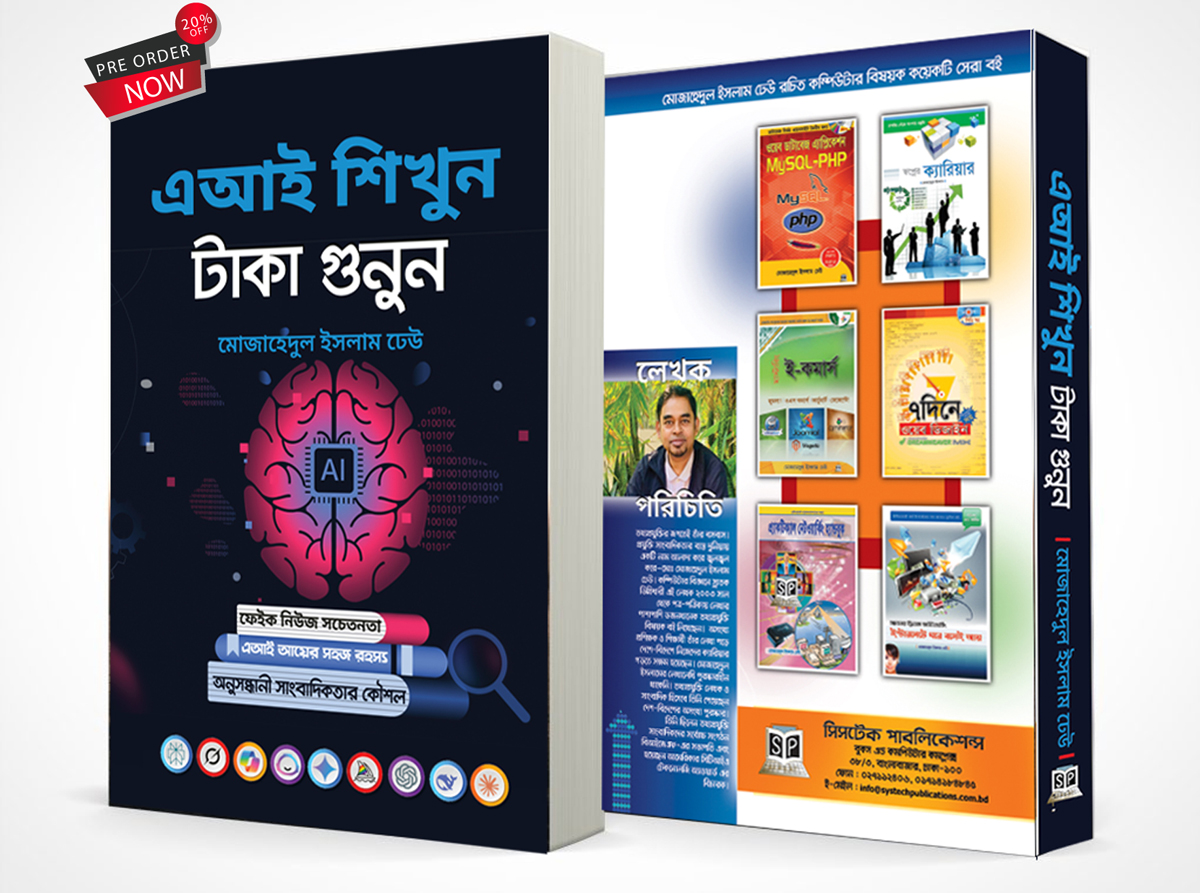
Technology writer and journalist Mojahidul Islam Dheow is set to release his new book, “AI Sikhun, Taka Gunun.”
Online pre-orders have already started, and the book is being published by Systech Publications.
In today’s digital age, we stand at a turning point—where simple keystrokes can turn into dollars, and Artificial Intelligence (AI) is becoming humanity’s newest coworker.
This book acts as a bridge, connecting learning with earning and blending investigative journalism with awareness-raising for general readers. The book is structured into three parts.
The first section is designed as an earning guide for young people. It explains how AI content prompts can create opportunities in the freelancing market and how small ideas can grow into significant income streams.
The second section serves as a hands-on investigative handbook for journalists, offering practical tips on using AI tools for data mining, verifying sources, and ensuring cybersecurity.
The third section is aimed at general readers. It presents the opportunities and risks of AI in simple language while also teaching methods for spotting deepfakes and identifying fake news.
Mojahidul Islam Dheow, a Computer Science graduate, has been writing and publishing technology-related books since 2003, with more than a dozen titles to his name.
His book “Web Database Application: MySQL–PHP” was the first Bangla-language book on website database and application development, earning him the Best Author Award in 2021. Dheow’s writing style is lively and accessible—sometimes deeply technical, sometimes witty and lighthearted. His words make readers feel as though they are casually learning new hacks while chatting with a friend.
This book is equally valuable for three key audiences: those who want to start freelancing but don’t know how to begin, journalists eager to learn the magic of AI-powered data tools, and everyday readers curious about how AI is reshaping our daily lives.
All in all, “AI Sikhun, Taka Gunun” is not just another book—it is a complete roadmap for surviving and thriving in the age of AI.
According to the author, the book will help readers discover numerous exciting ways to earn with AI. These include offering writing services with AI content tools, managing brands and social media accounts, providing AI-powered SEO services, creating and selling custom GPTs, producing AI-generated art and images, affiliate marketing, optimizing paid advertising, offering translation and localization services, developing and selling AI-powered digital products, teaching and hosting online courses, building websites and running email marketing campaigns, creating AI chatbots for businesses, developing mobile apps, automating lead generation, managing and analyzing data, and even producing AI-powered YouTube content.
The printed price is 400 Taka. If pre-ordered, the book can be purchased at a 20% discount for 320 Taka at https://www.rokomari.com/book/504542/ai-shikhun-taka-gunun.
Tech
A10 Networks Expands its Cybersecurity Portfolio with Acquisition of ThreatX Protect
Published
10 months agoon
March 13, 2025
ThreatX Protect Addresses Critical Need to Protect Against Evolving Application and API Security Threats
To continue to help customers address the rapidly evolving cyber threat landscape, A10 Networks has acquired the assets and key personnel of ThreatX Protect expanding its cybersecurity portfolio with web application and API protection (WAAP). The acquisition is expected to be modestly accretive to A10’s earnings per share in 2025 and has closed.
Attacks against web applications and application programming interfaces (APIs) are on the rise and are a significant threat to enterprises. ThreatX Protect provides a unique WAAP solution using behavioral and risk profiling to help protect enterprises from evolving threats, including threats to AI applications, which can complement an AI firewall. Delivered as a software-as-a service solution, ThreatX Protect includes API protection, bot management and next-generation web application firewall.
“Expanding the A10 Defend security portfolio with ThreatX Protect gives our customers an additional tool in their strategy to protect against new and evolving threats,” said Dhrupad Trivedi, president and CEO, A10 Networks. “Our strategic focus is on helping enterprises secure their applications and networks from the growing number of threats today, as well as protecting the emerging AI use cases of the future. Adding WAAP to our solution set gives customers additional capabilities to help establish a strong security posture.”
“We are thrilled that A10 Networks has acquired certain assets of ThreatX, including the brand and the TX Protect WAAP solution to expand A10’s security portfolio,” said Gene Fay, CEO of ThreatX. “A10 has been a fantastic partner throughout this process, and we are confident that our customers and employees will thrive under their leadership.”
As a result of this transition, the remaining assets of ThreatX will be launched as Run Security with TX Prevent, the cutting-edge eBPF-based solution re-launched as RS Prevent.
ThreatX Protect supports A10’s strategy of helping customers deploy A10 security solutions in a hybrid approach to protect apps and APIs running anywhere – public cloud, private cloud, co- location facilities or on-premises. The A10 Defend portfolio of solutions provides DDoS protection, DDoS threat intelligence and web application, and now adds a full-featured WAAP solution all integrated into a single platform with end-to-end delivery and stronger security for mission-critical applications.
Specific terms of the transaction were not disclosed. The acquisition is consistent with A10’s stated strategy of expanding the Company’s security portfolio to grow in the enterprise market. The acquisition does not represent a material change to the Company’s 2025 financial outlook or long-term business model.

From Confusion to Clarity: Dheow’s Book Helps Users Master ChatGPT Conversations

Pre-Orders Open for Mojahidul Islam’s Latest Computer Book ‘AI Shikhun, Taka Gunun’

Bangladesh’s Press at a Crossroads: Between Promises of Reform and the Shadows of Repression









